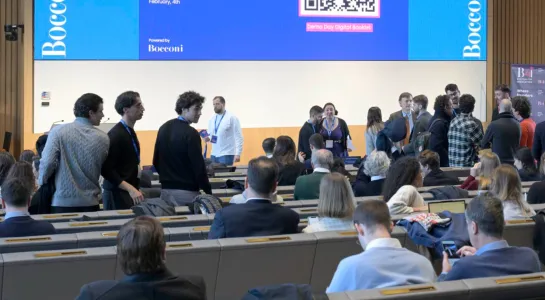
Rules, Capital and Ideas
The Law Is Holding Capital Back
Europe suffers from a structural lag in new venture investment compared to the United States. A Bocconi study reveals that the problem is not just economic, but legal: corporate rules limit contractual freedom and hinder Venture Capital
by Luca Enriques
Venture Capital (VC) is widely recognized as a critical engine for innovation and economic growth, fueling high-tech startups and driving job creation. While the United States boasts a highly dynamic VC market, Europe has historically struggled to keep pace, exhibiting a persistent and significant funding gap. New research, however, reveals a key, often overlooked, determinant of this transatlantic disparity: corporate law’s role in hindering VC investments.
My studies (co-authored with Tobias Tröger and Casimiro A. Nigro) delve into the intricate relationship between legal frameworks and VC contracting, particularly focusing on Germany and Italy as representative European jurisdictions. The core finding is that the sophisticated and presumptively efficient contractual framework that underpins US VC deals — crafted over decades to address inherent uncertainties, information asymmetries and moral hazard in startup financing — is remarkably difficult to “transplant” into these European contexts. This leads to a significant “functionality gap” between US and European VC agreements.
The primary culprit is not always explicit “blackletter law” provisions, but rather the pervasive interpretations that constitute “corporate law in action”. These interpretations, shaped by legal scholars, notaries, courts and arbitrators, often introduce a web of implicit mandatory rules and standards that curtail contracting parties’ ability to engineer optimal VC contracts. Consequently, key US-style provisions like convertible preferred shares, automatic and cumulative dividends, and robust liquidation preferences are largely deemed unviable, or their enforceability becomes uncertain. This forces venture capitalists and entrepreneurs to resort to “inferior alternative arrangements” that are less effective and ultimately less valuable.
How can this finding be explained? To answer this question, we focus on Italian corporate law and find a response in its legal culture, which in turn is affected by at least four factors. First, historically, the dominance of banks in corporate finance fostered a demand for rigid laws, with little pressure for flexibility. Second, the self-interest of legal professionals plays a role, as a complex, mandatory framework increases demand for their services and rents. Third, a distrust of markets among (legal) elites contributes to a general aversion to private ordering. Finally, we argue that academics’ incentives play a role too: amid such an environment, scholars are more likely to gain recognition by “finding” novel mandatory principles that limit contractual freedom than by advocating for legal deference to existing private solutions.
The practical consequences are stark: at the margin, the cost of capital for European startups is higher and the VC market less dynamic. Attempts by German and Italian startups to sidestep these domestic constraints by incorporating abroad are often costly and impractical, especially for early-stage firms, and do not fully resolve the issue. Critically, formal contracts are not mere guidelines; their enforceability profoundly impacts financial returns, particularly during economic downturns when disputes are more likely to arise.
To address this challenge, policymakers must move beyond traditional deregulatory statutory reforms. Instead, our research recommends proactive measures such as statutory provisions that explicitly insulate US-style VC arrangements from restrictive interpretations. Additionally, devising standardized, legally enforceable model charters aligned with US VC transactional practices could significantly enhance Europe’s venture capital landscape, fostering innovation and growth.




